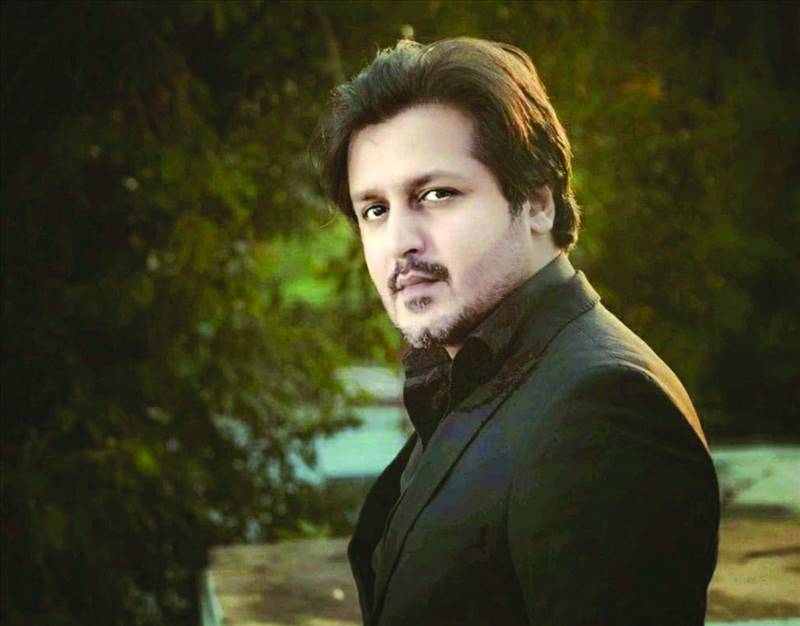
Multiple experiences of presenting at international film festivals and a proper education in his field combine to make Kamran Faiq a director who compromises neither on content nor technicality. It is one of the reasons why his work is selective and not prolific. Endowed with a cultural sensibility, Faiq has worked on scripts penned by greats like Sarmad Sehbai and Faseeh Bari Khan, acting as the director of the opening sequence of Mah-e-Mir and supervising the production of 7 Din Mohabbat In. This youngest industry professional from Pakistan to make it to the 70th Venice Film Festival also founded DAWN’s film department – besides directing the drama serial Milan on See TV, producing Michael Hudson’s Driven and assisting and acting in the remake of Devar Bhabi under the banner of Tarang Films. He started off as an actor, doing sitcoms and serials for Indus Vision and ARY, until he felt that the kind of stories coming his way are not his real calling. He then attained a degree in Film and Television from NCA and took up the art of story-telling through televised mediums himself. The Friday Times caught up with the actor, director and producer to ask him a few questions.
Muhammad Ali: You were a part of the Pakistani drama industry in the mid-2000s and then re-entered it after attaining a proper degree in the field. What change, positive or negative, did you observe after your come-back?
Kamran Faiq: Unfortunately, it has regressed, the reason being that the people sitting on the top are not creative artists, but market-men who are more interested in selling what brings capital. Our stories are predictable to the extent that you can guess the cause and effect even if you have started watching a serial from the middle. This should never be the case in any kind of narrative. However, it still is doing a lot better than our film industry.
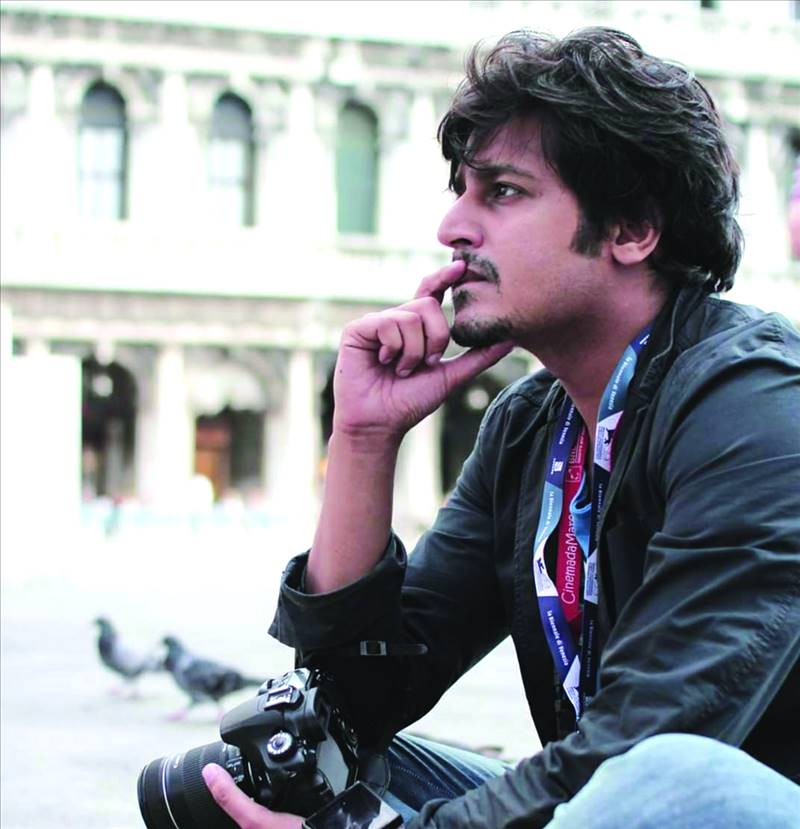
M.A.: Do you think that a proper degree in Film and Television earns you more respect than mere experience? Does it make you stand out or one has to give in to commercial demands by the end of the day?
K.F.: Degrees in these areas are a recent phenomenon. The majority of the people in our showbiz have been working without such degrees to their credit and constitute an important lot of the industry. One has to work extremely hard to earn a name, for usually it happens that the people working prior to your entry try their best to bring you down and force you to abandon everything and leave. It then becomes your responsibility to meet the right people so as not to grow into an accomplice in manipulative attitudes and unartistic, commercial works. One needs to keep watching quality content and not give up, otherwise you are bound to become a part of the cycle that is in work for years and years. This is something I refused to do and therefore have been doing selective work.
M.A.: One of your projects after your come-back was Devar Bhabi, a movie from Tarang Film Series of classics’ remakes, in which you worked both as an actor and as an assistant director. Did you ever feel that it would have been good had you worked on some other remake from the series, for there were Aaina, Armaan, Dil Mera Dharkan Teri and Abhi Tou Mein Jawan Hoon as well?
K.F.: Certainly not! I had made a fresh come-back and my focus was on work, and fortunately, I got a chance to employ both of my talents in Devar Bhabi. The advantage which this project gave me was that it was made on the format of a film, and not on the format of a serial, for the chief director of Devar Bhabi was Syed Noor. His experience of working in the cinema served the purpose of making a film’s remake, as a result of which our project’s premiere was held in the cinema first, and then on television unlike other films from the series which were directly sent on television.
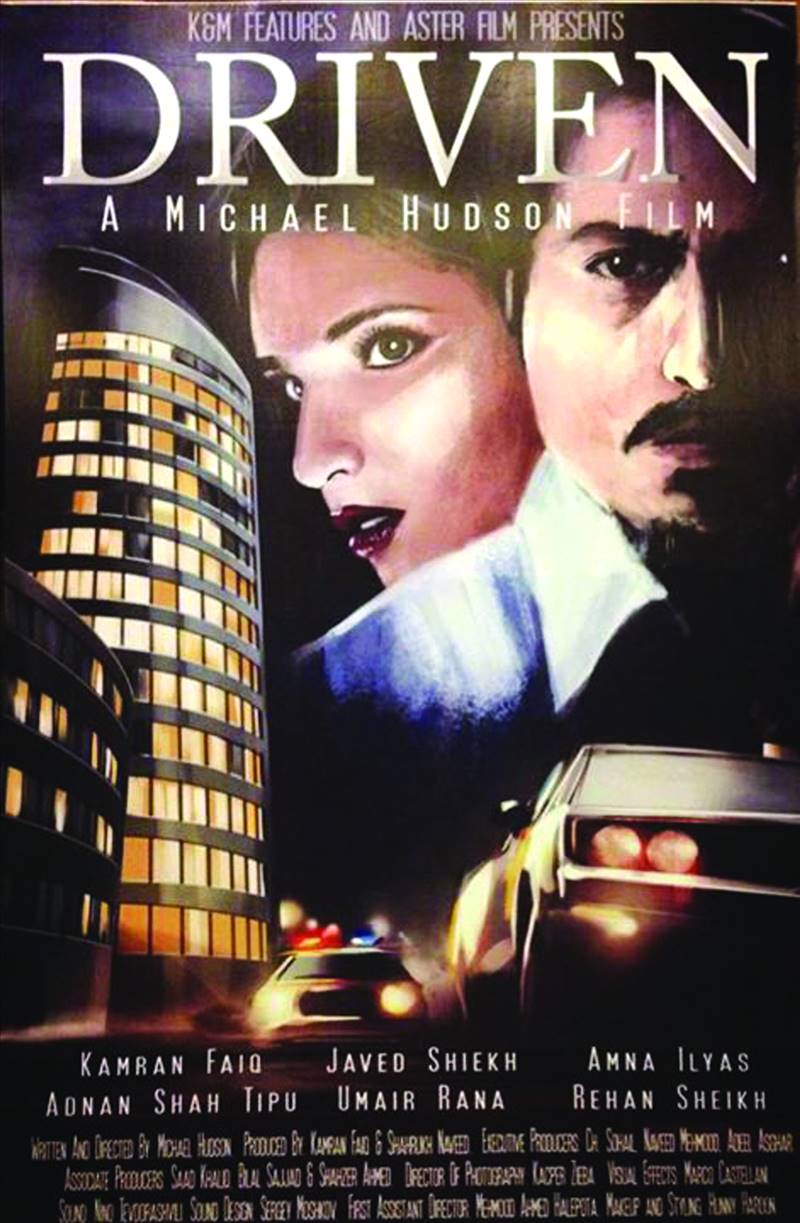
M.A.: You have won numerous awards at international film festivals. Tell us something about that.
K.F.: I have participated and won at Cinemada Mare Film Festival, Italy, many a times; first in 2010 and then consecutively from 2012 to 2014. In this festival, young filmmakers are given a team which travels from city to city, explores and creates. Apart from that, some of my films have been screened in Poland as well.
M.A.: After travelling abroad and participating in international film festivals, what differences, both technical and thematic, have you observed if you were to compare with Pakistani cinema?
K.F.: Yes, traveling and attending international film festivals have been two of the most enlightening experiences of my life, which helped me grow as an individual and made me feel more confident about my work. One of the main reasons why the Western film industry is far ahead of us is the acceptance of ideas. Like any other industry, the film industry also needs innovative ideas in order to move forward. This is where we lack, unfortunately. If one director makes a romantic comedy and it turns out to be a success, all other filmmakers follow suit. I believe our audiences are ready to experience different genres and certainly have an appetite for variety. It is up to us to experiment and understand. We have achieved success when it comes to technicalities, but we haven’t progressed in terms of content. Only a handful of filmmakers are making parallel cinema and they are truly brave to do so, such as Jami Moor, Adnan Shah Sarwar, Sabiha Sumar, Iram Parveen Bilal, Shoaib Mansoor, Sarmad Khoosat, Afia Nathaniel and Asim Abbasi. These people deserve appreciation because they went against the popularly held opinions, and that is why they’ll be remembered as well.
M.A.: A director is a story-teller. What is your perspective as someone who likes to tell stories through the medium of film?
K.F.: A director’s job is certainly one of the most difficult jobs. As easy as it may sound, but to marshal a talented team of individuals into a single winning voice is a big challenge. It is the unified vision of a team which makes a great film. My idea or vision as a director is simple - I don’t just want to entertain my viewers, but I want them to reflect and imagine. My films should incline people to think out of their intellectual comfort zone, and they should walk away with a learnt lesson. It’s good to take inspirations but your work should have originality as well, which is something which I want my projects to reflect. We have millions of stories around us. If we pay close attention, we may realize that we have been ignorantly sitting on a pot of gold all these years, for Pakistan is one of the most culturally enriched countries in the world, hence an ideal place to explore and experiment with ideas.
M.A.: You have been a part of both Mah e Mir and 7 Din Mohabbat In. Ironically, the art film received more appreciation. Do you think it’s a good sign for parallel cinema or do we still need to make more rom-coms before moving towards that field?
K.F.: Parallel cinema is characterized by its serious content which follows the techniques of Realism and Naturalism, and incorporates symbolic elements with a rejection of forcibly inserted dance-and-song routines that are typical of mainstream Indian films. With our audience growing mature with time, they do demand issue-driven films with realistic visuals. So, it’s definitely a good sign that our viewers are sensible enough to reject bad films.
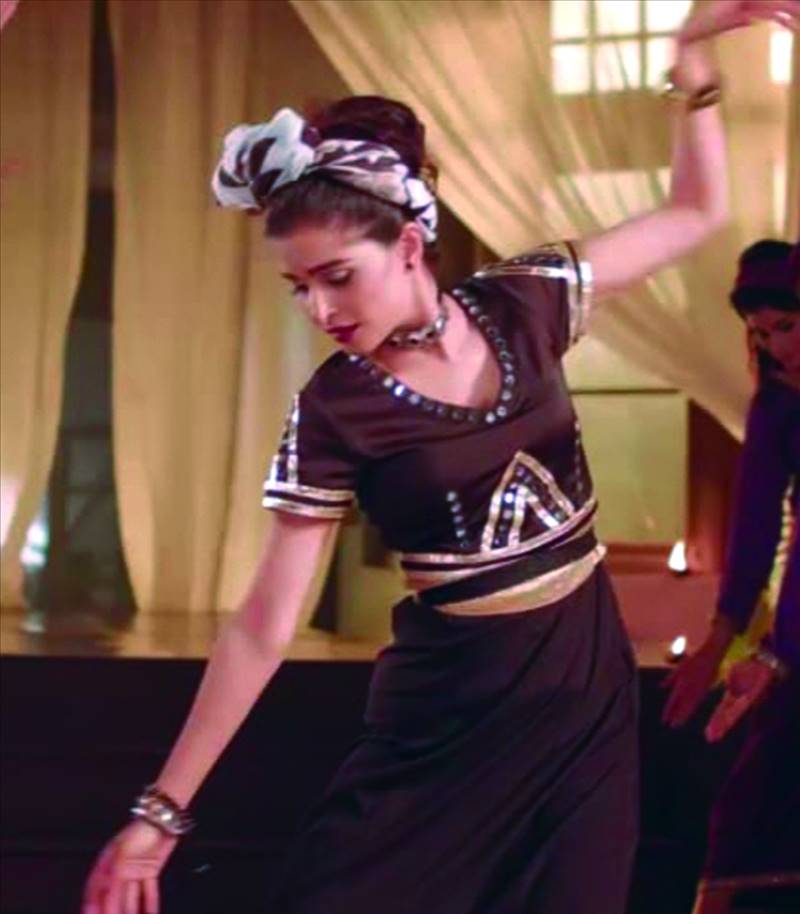
M.A.: Tell us something about your docu-drama under process. How did you come up with the idea and when are we seeing it on screen?
K.F.: Still under process, it is titled Kuch Yaad Hai. It wouldn’t have been possible without Mr. Imtiaz Rafi Butt who came up with the idea and Asad Ehsan and Rashid Khan who decided to execute it further as executive producers. It is basically a musical docu-drama; a story of resurrection then and now, in which the past and the present collide and converge in images, memories and movement to reveal the stories beneath the surface of some of the important events in the Pakistani history. As it will move further, it will transcend the genre of documentary, letting music be the sole narrator and serving the story in a dynamic and visceral sequence. Earlier, it was meant to be for cinemas, but after the pandemic, we are open to other options as well.
M.A.: You have made multiple remakes. What attracts you in renditions of classical films and songs?
K.F.: It’s purely a coincidence, but one thing which I admit is that our culture appeals to me a lot. I dislike shooting in bungalows and with lavish settings in the background. I prefer a certain kind of furniture on my sets, which is simple and culturally authentic.
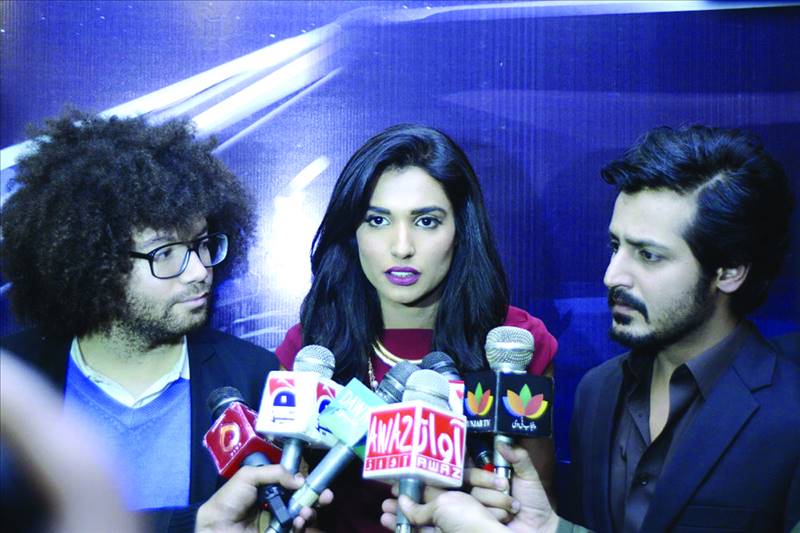
M.A.: How did you and Michael Hudson collaborate for the film, Driven, the action-thriller to your name? When are we seeing it on the big screen?
K.F.: We met at the Venice Film Festival and worked on a number of short films after that. These would mostly be directed by him, with my role being that of a performer. After doing a couple of short films, we decided to go for Driven, which was actually my dream project and for which I raised finances as well. As a result, it was my collaborative production with Shahrukh Naveed, directed by Michael Hudson and starring me, Rehan Shaikh, Amna Ilyas, Adnan Shah Tipu and Omair Rana. There have been many moments in time when it was just about to be released but I refused to give in to the content heads’ demands of including an item song for no reason. There’s no place of an item song in Driven and I can’t forcibly incorporate one into the narrative without logical grounds.
M.A.: You have worked with Fasih Bari Khan in the past and are collaborating with him again. Is it a film or a drama this time? What attracts you the most in his writings?
K.F.: I can’t reveal much at the moment but we are developing for both a film and a web-series. What attracts me the most in his writing are his characters. They are people with traits which we are often afraid to talk about openly, but he writes them so beautifully that they immediately become an extension of our own personality. Where our drama industry is filled with pointless plots and hollow characters, Faseeh Bari’s layered stories and multi-dimensional characters with a fine attention to details are surely a fresh breeze.
M.A.: You were also involved in the initial process of a film written by Anthony McCarten. Would you like to share something about it?
K.F.: Yes, I was involved in the development funding of which was to be his next film after Stephen Hawking’s biopic, The Theory of Everything. Many people were involved in it, including me, my contribution being the raising of finances as a project collaborator from Pakistan. However, a better bid from a UK-based group of filmmakers landed them the film. Although it was a bit disappointing, I got to learn a lot while working with filmmakers from outside Pakistan.
M.A.: You have been associated with biopics, action-thrillers and art-drama movies. Which is your personal favourite genre among these?
K.F.: I personally like action-thrillers. Action-thrillers come first on the list, and then drama films.
M.A.: How do you think reading helps a filmmaker? Which book has been your biggest inspiration when it comes to directorial work?
K.F.: Every filmmaker should read books. It fuels your imagination and helps you understand your characters better, for books give you an insight into various psychologies and behaviours. Similarly, reading helps filmmakers in understanding their own craft and in taking it to another level. Narrative is the king! Fancy shots don’t make a film, but your good quality narrative does. While I have read many books on film-making, one of the most important ones for me was The director’s Idea: The path to Great Directing by Ken Dancyger. This book really helped me understand direction and film narrative in an advanced manner, aiding me in becoming clearer with my idea. I found my work to be deeper and effective on screen after having gone through that book. Film today is one of the most important global industries, so to be on top of your game, reading definitely helps. Making a film requires hundreds of decisions each day so you should be well equipped with film knowledge and the ways to practically utilize it.
M.A.: What, according to you, is the biggest problem experienced by Pakistani filmmakers?
K.F.: It has to do with finances. People here are not ready to fund, except for brands which can only help you if you are in contact with them. All over the world, there are organizations which are there to assist filmmakers. They are present in the form of funding bodies which provide production packages. Unfortunately, no such thing exists here, which reveals the height of our negligence when it comes to films. Cinepax once initiated such a body but it didn’t turn out to be a success. At NCA which is my alma mater and where I have acted as a teaching associate as well, I really wanted to introduce a course which would teach film students the professional techniques of producing movies. Somehow, it couldn’t be materialized.
Muhammad Ali is an M.Phil scholar and a former visiting lecturer at GCU, Lahore. His interest lies in indigenous literature, the specific research areas being the Partition novel, Environmental Literature emerging from South Asia and classical and contemporary Pakistani television drama. His research on Sahira Kazmi’s “Zaib un Nisa”, which was a part of his graduation thesis, has been presented on various platforms including Olomopolo Media. The writer can be reached at m.ali_aquarius85@yahoo.com.
***
Muhammad Ali: You were a part of the Pakistani drama industry in the mid-2000s and then re-entered it after attaining a proper degree in the field. What change, positive or negative, did you observe after your come-back?
Kamran Faiq: Unfortunately, it has regressed, the reason being that the people sitting on the top are not creative artists, but market-men who are more interested in selling what brings capital. Our stories are predictable to the extent that you can guess the cause and effect even if you have started watching a serial from the middle. This should never be the case in any kind of narrative. However, it still is doing a lot better than our film industry.

M.A.: Do you think that a proper degree in Film and Television earns you more respect than mere experience? Does it make you stand out or one has to give in to commercial demands by the end of the day?
K.F.: Degrees in these areas are a recent phenomenon. The majority of the people in our showbiz have been working without such degrees to their credit and constitute an important lot of the industry. One has to work extremely hard to earn a name, for usually it happens that the people working prior to your entry try their best to bring you down and force you to abandon everything and leave. It then becomes your responsibility to meet the right people so as not to grow into an accomplice in manipulative attitudes and unartistic, commercial works. One needs to keep watching quality content and not give up, otherwise you are bound to become a part of the cycle that is in work for years and years. This is something I refused to do and therefore have been doing selective work.
M.A.: One of your projects after your come-back was Devar Bhabi, a movie from Tarang Film Series of classics’ remakes, in which you worked both as an actor and as an assistant director. Did you ever feel that it would have been good had you worked on some other remake from the series, for there were Aaina, Armaan, Dil Mera Dharkan Teri and Abhi Tou Mein Jawan Hoon as well?
K.F.: Certainly not! I had made a fresh come-back and my focus was on work, and fortunately, I got a chance to employ both of my talents in Devar Bhabi. The advantage which this project gave me was that it was made on the format of a film, and not on the format of a serial, for the chief director of Devar Bhabi was Syed Noor. His experience of working in the cinema served the purpose of making a film’s remake, as a result of which our project’s premiere was held in the cinema first, and then on television unlike other films from the series which were directly sent on television.

“We have achieved success when it comes to technicalities, but we haven’t progressed in terms of content. Only a handful of filmmakers are making parallel cinema and they are truly brave to do so”
M.A.: You have won numerous awards at international film festivals. Tell us something about that.
K.F.: I have participated and won at Cinemada Mare Film Festival, Italy, many a times; first in 2010 and then consecutively from 2012 to 2014. In this festival, young filmmakers are given a team which travels from city to city, explores and creates. Apart from that, some of my films have been screened in Poland as well.
M.A.: After travelling abroad and participating in international film festivals, what differences, both technical and thematic, have you observed if you were to compare with Pakistani cinema?
K.F.: Yes, traveling and attending international film festivals have been two of the most enlightening experiences of my life, which helped me grow as an individual and made me feel more confident about my work. One of the main reasons why the Western film industry is far ahead of us is the acceptance of ideas. Like any other industry, the film industry also needs innovative ideas in order to move forward. This is where we lack, unfortunately. If one director makes a romantic comedy and it turns out to be a success, all other filmmakers follow suit. I believe our audiences are ready to experience different genres and certainly have an appetite for variety. It is up to us to experiment and understand. We have achieved success when it comes to technicalities, but we haven’t progressed in terms of content. Only a handful of filmmakers are making parallel cinema and they are truly brave to do so, such as Jami Moor, Adnan Shah Sarwar, Sabiha Sumar, Iram Parveen Bilal, Shoaib Mansoor, Sarmad Khoosat, Afia Nathaniel and Asim Abbasi. These people deserve appreciation because they went against the popularly held opinions, and that is why they’ll be remembered as well.
“I dislike shooting in bungalows and with lavish settings in the background. I prefer a certain kind of furniture on my sets, which is simple and culturally authentic”
M.A.: A director is a story-teller. What is your perspective as someone who likes to tell stories through the medium of film?
K.F.: A director’s job is certainly one of the most difficult jobs. As easy as it may sound, but to marshal a talented team of individuals into a single winning voice is a big challenge. It is the unified vision of a team which makes a great film. My idea or vision as a director is simple - I don’t just want to entertain my viewers, but I want them to reflect and imagine. My films should incline people to think out of their intellectual comfort zone, and they should walk away with a learnt lesson. It’s good to take inspirations but your work should have originality as well, which is something which I want my projects to reflect. We have millions of stories around us. If we pay close attention, we may realize that we have been ignorantly sitting on a pot of gold all these years, for Pakistan is one of the most culturally enriched countries in the world, hence an ideal place to explore and experiment with ideas.
M.A.: You have been a part of both Mah e Mir and 7 Din Mohabbat In. Ironically, the art film received more appreciation. Do you think it’s a good sign for parallel cinema or do we still need to make more rom-coms before moving towards that field?
K.F.: Parallel cinema is characterized by its serious content which follows the techniques of Realism and Naturalism, and incorporates symbolic elements with a rejection of forcibly inserted dance-and-song routines that are typical of mainstream Indian films. With our audience growing mature with time, they do demand issue-driven films with realistic visuals. So, it’s definitely a good sign that our viewers are sensible enough to reject bad films.

M.A.: Tell us something about your docu-drama under process. How did you come up with the idea and when are we seeing it on screen?
K.F.: Still under process, it is titled Kuch Yaad Hai. It wouldn’t have been possible without Mr. Imtiaz Rafi Butt who came up with the idea and Asad Ehsan and Rashid Khan who decided to execute it further as executive producers. It is basically a musical docu-drama; a story of resurrection then and now, in which the past and the present collide and converge in images, memories and movement to reveal the stories beneath the surface of some of the important events in the Pakistani history. As it will move further, it will transcend the genre of documentary, letting music be the sole narrator and serving the story in a dynamic and visceral sequence. Earlier, it was meant to be for cinemas, but after the pandemic, we are open to other options as well.
M.A.: You have made multiple remakes. What attracts you in renditions of classical films and songs?
K.F.: It’s purely a coincidence, but one thing which I admit is that our culture appeals to me a lot. I dislike shooting in bungalows and with lavish settings in the background. I prefer a certain kind of furniture on my sets, which is simple and culturally authentic.

M.A.: How did you and Michael Hudson collaborate for the film, Driven, the action-thriller to your name? When are we seeing it on the big screen?
K.F.: We met at the Venice Film Festival and worked on a number of short films after that. These would mostly be directed by him, with my role being that of a performer. After doing a couple of short films, we decided to go for Driven, which was actually my dream project and for which I raised finances as well. As a result, it was my collaborative production with Shahrukh Naveed, directed by Michael Hudson and starring me, Rehan Shaikh, Amna Ilyas, Adnan Shah Tipu and Omair Rana. There have been many moments in time when it was just about to be released but I refused to give in to the content heads’ demands of including an item song for no reason. There’s no place of an item song in Driven and I can’t forcibly incorporate one into the narrative without logical grounds.
M.A.: You have worked with Fasih Bari Khan in the past and are collaborating with him again. Is it a film or a drama this time? What attracts you the most in his writings?
K.F.: I can’t reveal much at the moment but we are developing for both a film and a web-series. What attracts me the most in his writing are his characters. They are people with traits which we are often afraid to talk about openly, but he writes them so beautifully that they immediately become an extension of our own personality. Where our drama industry is filled with pointless plots and hollow characters, Faseeh Bari’s layered stories and multi-dimensional characters with a fine attention to details are surely a fresh breeze.
M.A.: You were also involved in the initial process of a film written by Anthony McCarten. Would you like to share something about it?
K.F.: Yes, I was involved in the development funding of which was to be his next film after Stephen Hawking’s biopic, The Theory of Everything. Many people were involved in it, including me, my contribution being the raising of finances as a project collaborator from Pakistan. However, a better bid from a UK-based group of filmmakers landed them the film. Although it was a bit disappointing, I got to learn a lot while working with filmmakers from outside Pakistan.
M.A.: You have been associated with biopics, action-thrillers and art-drama movies. Which is your personal favourite genre among these?
K.F.: I personally like action-thrillers. Action-thrillers come first on the list, and then drama films.
M.A.: How do you think reading helps a filmmaker? Which book has been your biggest inspiration when it comes to directorial work?
K.F.: Every filmmaker should read books. It fuels your imagination and helps you understand your characters better, for books give you an insight into various psychologies and behaviours. Similarly, reading helps filmmakers in understanding their own craft and in taking it to another level. Narrative is the king! Fancy shots don’t make a film, but your good quality narrative does. While I have read many books on film-making, one of the most important ones for me was The director’s Idea: The path to Great Directing by Ken Dancyger. This book really helped me understand direction and film narrative in an advanced manner, aiding me in becoming clearer with my idea. I found my work to be deeper and effective on screen after having gone through that book. Film today is one of the most important global industries, so to be on top of your game, reading definitely helps. Making a film requires hundreds of decisions each day so you should be well equipped with film knowledge and the ways to practically utilize it.
M.A.: What, according to you, is the biggest problem experienced by Pakistani filmmakers?
K.F.: It has to do with finances. People here are not ready to fund, except for brands which can only help you if you are in contact with them. All over the world, there are organizations which are there to assist filmmakers. They are present in the form of funding bodies which provide production packages. Unfortunately, no such thing exists here, which reveals the height of our negligence when it comes to films. Cinepax once initiated such a body but it didn’t turn out to be a success. At NCA which is my alma mater and where I have acted as a teaching associate as well, I really wanted to introduce a course which would teach film students the professional techniques of producing movies. Somehow, it couldn’t be materialized.
Muhammad Ali is an M.Phil scholar and a former visiting lecturer at GCU, Lahore. His interest lies in indigenous literature, the specific research areas being the Partition novel, Environmental Literature emerging from South Asia and classical and contemporary Pakistani television drama. His research on Sahira Kazmi’s “Zaib un Nisa”, which was a part of his graduation thesis, has been presented on various platforms including Olomopolo Media. The writer can be reached at m.ali_aquarius85@yahoo.com.

